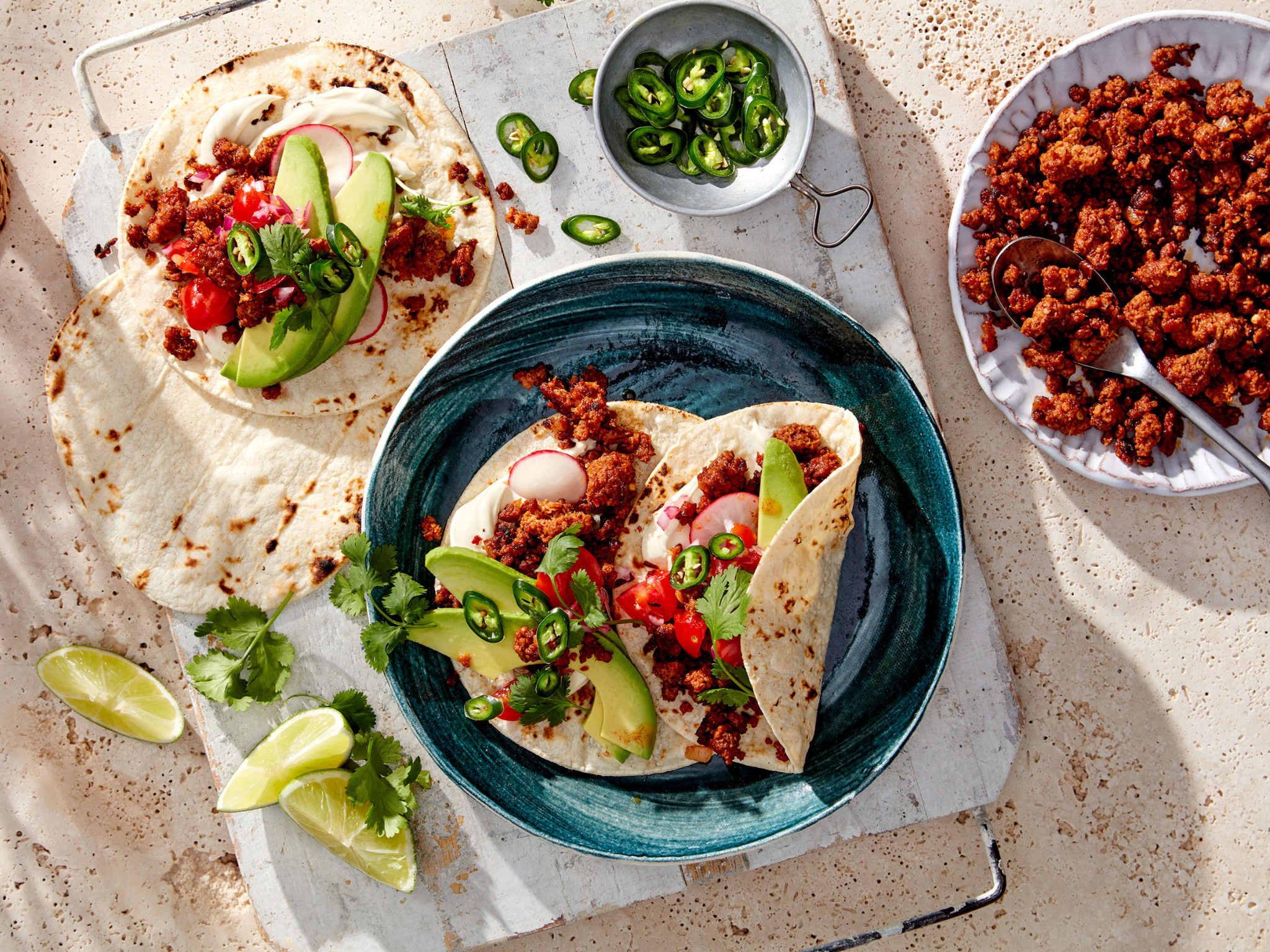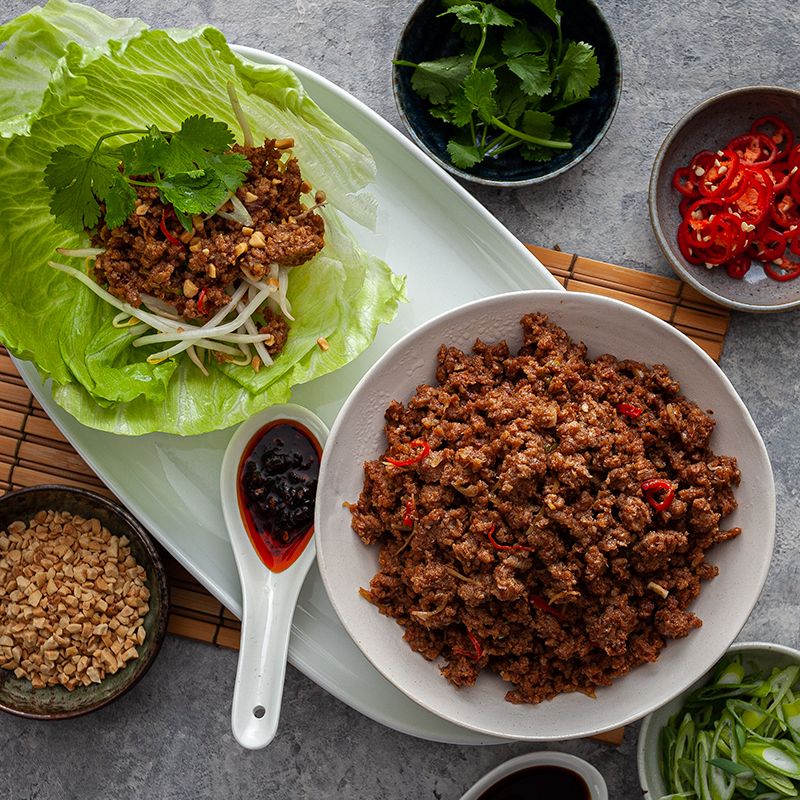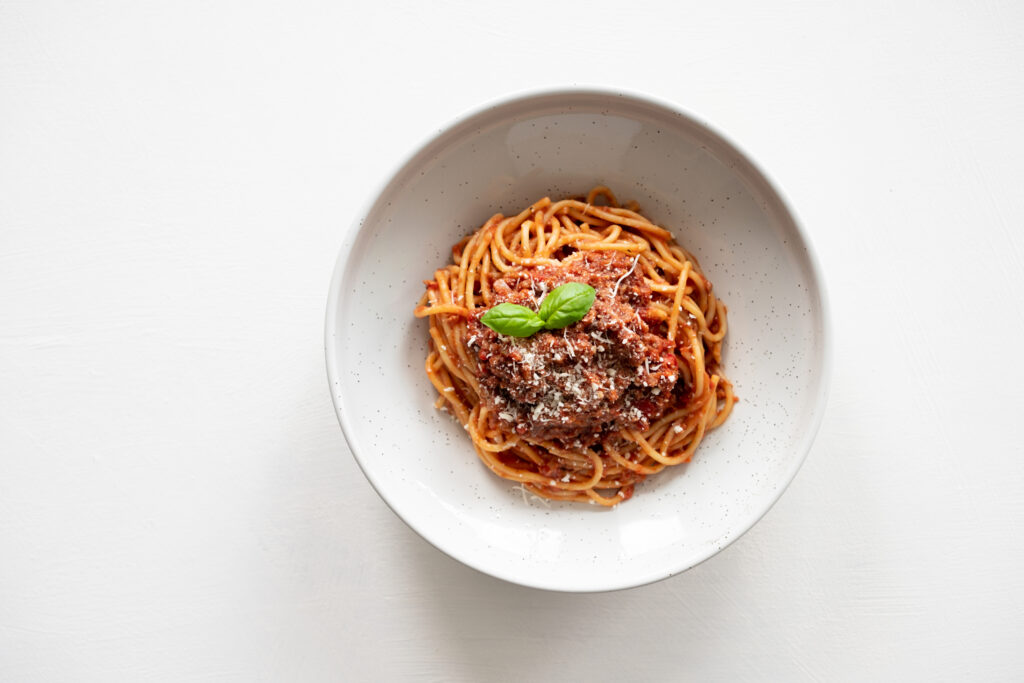
Two new studies have found that plant-based meat can match or outperform beef on many nutritional fronts, while also making you full faster.
A vegan mince product can have the the same protein quality and digestibility as conventional ground beef, but is more filling and better for gut health, two new studies have found.
Sydney-based vegan startup v2food collaborated with the Australian national science agency, CSIRO, to compare the health benefits of its soy protein beef with its animal-derived counterpart.
The studies entailed detailed analysis of the composition and nutritional attributes of v2food’s mince, and examined the effects of reformulating the product to enhance these health gains even further.
“With health being the top reason Australians choose plant-based meat, this research highlights how v2food mince can support a healthy lifestyle,” said Lisa-Claire Ronquest-Ross, chief science officer of the company.
A recent survey showed that 54% of ‘meat reducers’ in Australia were cutting back on animal proteins for health reasons, a sentiment echoed by 58% of flexitarians – making it by far the most popular dietary driver.
v2food’s plant-based meat aids gut health improvements

One of the studies analysed the protein quality, amino acid profile, fibre composition, iron absorption, and effects on the gut microbiota.
The total amino acid content was found to be comparable between conventional beef and the four formulations of the v2food mince tested (three of which were supplemented with different nutrients). While animal-derived beef had 26g of amino acids per 100g, the plant-based version had 18.65g, with the reformulated editions going as high as 20g.
The conventional beef had higher amounts of nearly all the individual amino acids, but v2food’s mince has a greater concentration of sulphur-containing acids.
Similarly, there was not much disparity in the protein digestibility scores either. Ground beef had a total rating of 71.7, while v2food’s alternative scored 73.6.
The vegan mince outperformed conventional beef on several factors. Animal products don’t contain any fibre, so the plant-based beef came out on top by default, featuring 6.7% of fibre by wet weight (mostly insoluble). These dietary fibres helped modulate the production of short-chain fatty acids, which brings about a favourable shift in the composition and activity of the gut microbiota, and therefore improved gut health.
Finally, intestinal absorption of iron from the v2food beef was three times lower than that of conventional mince, but the authors note that the former (alongside many other plant-based competitors) is formulated to achieve a total iron content in line with the requirements of Food Standards Australia and New Zealand to have a ‘source of iron’ claim.
Fortified meat analogues also provide a superior source of iron compared to vegan products that don’t have supplemental iron. Moreover, the v2food formulations that contained ferrous sulphate increased iron absorption by the intestine by 50%.
Vegan beef makes you full and satisfied faster

The second study focused squarely on satiety, measuring the amount of pasta eaten by 24 men on separate visits, containing a Bolognese sauce made either from v2food’s mince or conventional beef.
Both meals had a near-identical calorific value, while the protein made up 45% of the cooked meal’s weight. After the meal, they were given access to a well-stocked buffet to eat as much as they wanted for the next 30 minutes.
“The research also reveals that v2food mince induces feelings of fullness more quickly than traditional beef mince, with participants consuming significantly less pasta Bolognese made with v2food mince compared to beef mince after having a standard breakfast,” revealed Ronquest-Ross.
The participants were found to eat 72g less of the plant-based mince dish, as well as 586 fewer calories. Those who ate the v2food bolognese also consumed lower amounts of fat and starch, and higher amounts of fibre, while the amount of protein was similar between the two options.
But the energy intake at the buffet meal, and the measure of fullness, satiety and satisfaction after the pasta were not found to be different between the two beef dishes. In fact, the plant-based mince was more satiating and did not result in greater energy intakes at the subsequent buffet meal.
“Individuals need to consume lower volumes and amounts of energy to achieve satiety when consuming a meal prepared with plant-based mince, compared to an equivalent meal prepared with beef mince,” the researchers wrote.
This is an important finding at a time when one in five Australians identify themselves as meat reducers. In 2024 alone, a quarter of citizens have cut back on meat, with 12% planning to do so now, while 2% have eliminated it altogether – for these people, health is the main motivator (cited by 61%). It’s a welcome finding for a country with one of the highest per capita meat consumption rates globally.
“These plant-based protein products are complementary to our existing protein sources such as red meat and fish,” said Crispin Howitt, lead of CSIRO’s Future Protein vertical. “It’s important that these products are developed so that they are as healthy as possible and with nutritional claims backed by evidence. We need new protein options to sustain the world’s growing population into the future.”
The post Plant-Based Meat Matches Beef on Protein Quality and Fills You Up More Quickly, Finds Research appeared first on Green Queen.
This post was originally published on Green Queen.